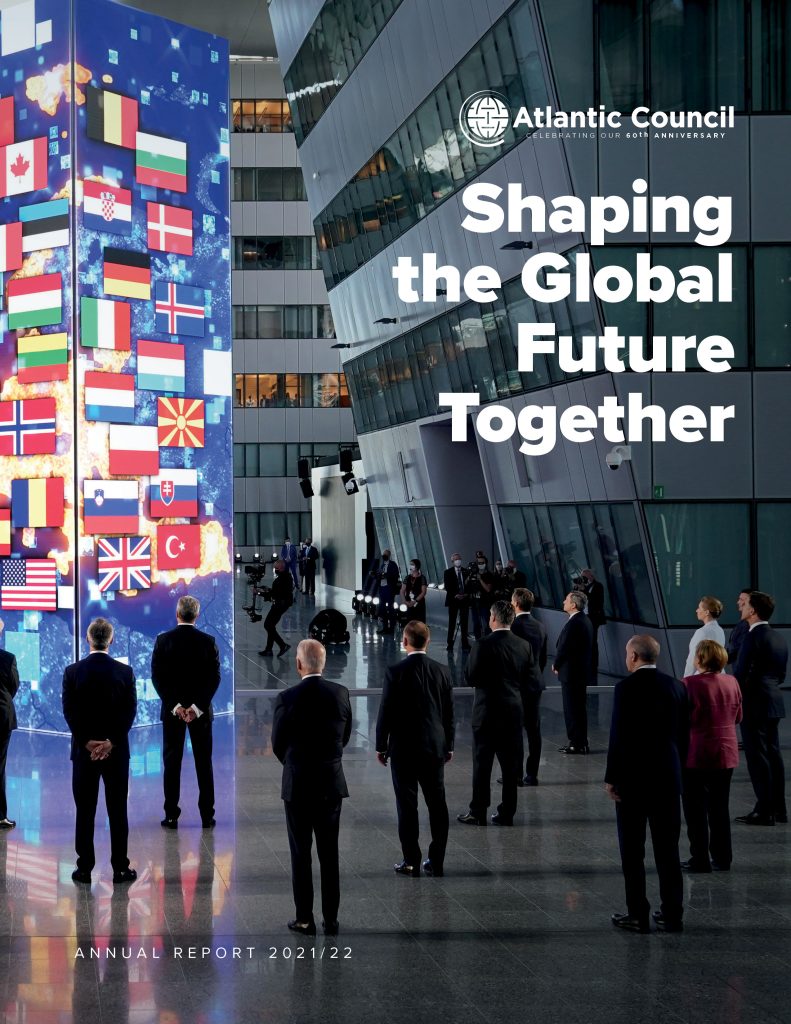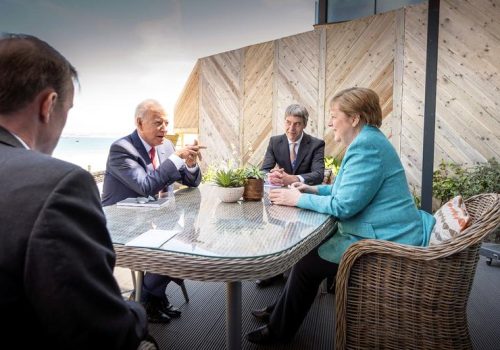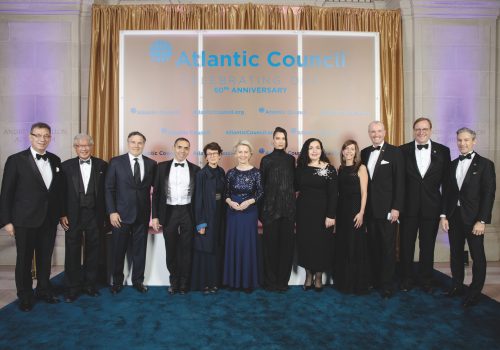Promoting energy security alongside partners to devise pragmatic solutions to the challenges of the energy transition.
The Global Energy Center (GEC) promotes energy security by working alongside government, industry, civil society, and public stakeholders to devise pragmatic solutions to the geopolitical, sustainability, and economic challenges of the changing global energy landscape. The center’s work focuses on three crosscutting themes: energy security, geopolitics, and markets; understanding and managing the energy transition; and climate change and advanced energy.
Throughout 2021, the GEC was at the forefront of the global conversation leading up to COP26, beginning with its “Raising Ambitions” series during the Leaders Summit on Climate in April and culminating in the Climate Action Solution Centre (CASC), held on the sidelines of COP at the Blair Estate outside of Glasgow, Scotland. Over the course of twelve days, the Atlantic Council led a daily series of high-level private convenings and dinners that each tackled a different set of the most intractable challenges for global decarbonization. Highlights included a reception with Speaker of the House Nancy Pelosi and Representative Alexandria Ocasio-Cortez (D-NY), and a dinner with Secretary of Transportation Pete Buttigieg.

The GEC once again leveraged best-in-class convening power through virtual, hybrid, and in-person programming that highlighted the leaders and experts shaping the global energy transition. Speakers hosted by the GEC in 2021 included: the United Arab Emirates (UAE) Minister of Industry and Advanced Technology and Special Envoy for Climate Change H.E. Dr. Sultan Ahmed Al Jaber; UAE Minister for Climate Change and Environment H.E. Mariam Almheiri; Namibia’s Minister of Energy and Mines H.E. Tom Alweendo MP; Senator Mike Braun (R-IN); Senator Chris Coons (D-DE); and Vice President of the European Commission Frans Timmermans.
The GEC continued to provide expertise in energy security, oil and gas markets, and the geopolitics of the energy transition. In 2021, the center published several major reports that examined various facets of the energy transition: Preparing for Decarbonization: Reforming US Power Markets for the Energy Transition addressed the integration of renewables into the US grid; Shifting Gears: Geopolitics of the Global Energy Transition examined different transition scenarios and the likelihood of geopolitical stability or uncertainty as demand for hydrocarbons falls; and The Energy Transition in the Arab Gulf: From Vision to Reality explored the ways in which Saudi Arabia and the UAE are working to lead the energy transition. Additional publications included the center’s hydrogen policy sprint series, analysis of the policies that govern the US acquisition of minerals and the minerals supply chain, and work on the importance of cyber security for the energy transition.
“Throughout 2021, the GEC led the global conversation on actionable solutions to the most intractable problems in climate mitigation and energy systems transformation.”
Randy Bell
The Global Energy Center also redoubled its efforts to engage new communities and bring new voices into the policy conversation. The center ran the third year of the Veterans Advanced Energy Project and hosted the third annual Veterans Advanced Energy Summit, offering military service members and their families the opportunity to network and learn about clean energy policy. In partnership with RBC Foundation, the GEC renewed and expanded its Women Leaders in Energy and Climate Fellowship, a one-year program for women energy and climate policy leaders under the age of thirty-five to receive unique mentorship opportunities and professional development training.
Vision for 2022
In 2022, the center will expand its nuclear energy work with the launch of its Nuclear Energy Policy Initiative, and it will also continue its efforts on climate and trade through the Transatlantic Climate Policy Program. The center will continue to examine the geopolitics of the energy transition, with a focus on the role of oil and gas in a net-zero world, and it will expand its work on the policy implications of increased demand for minerals.
Next
Read the full report

Annual Report 2021/2022
The Atlantic Council has never been more robust operationally, substantively, or financially in its sixty-year history. This comes at a time when our work has never been more crucial in the face of complex, daunting, and worldwide challenges.
Image: Randy Bell (Senior Director, Global Energy Center) speaks with Greg Jackson (CEO, Octopus Energy), outside of the Blair Estate in Scotland, at the Climate Action Solution Centre on the sidelines of COP26.




